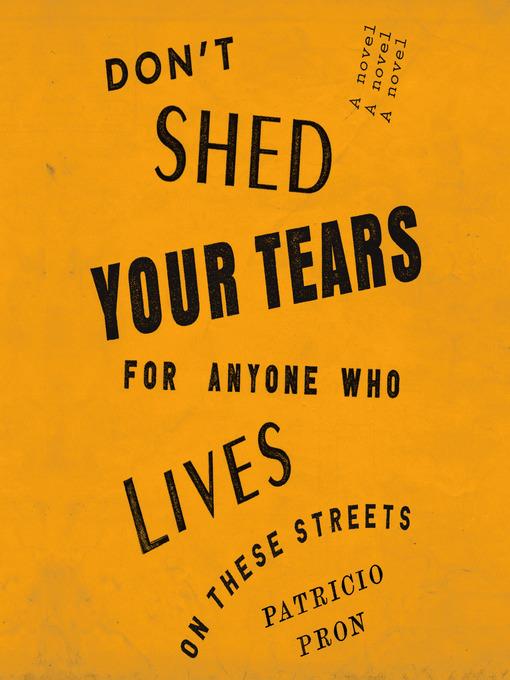
Don't Shed Your Tears for Anyone Who Lives on These Streets
A novel
کتاب های مرتبط
- اطلاعات
- نقد و بررسی
- دیدگاه کاربران
نقد و بررسی

March 30, 2020
Pron (after My Fathers’ Ghost Is Climbing in the Rain) delivers a dry study of political extremism and its intersection with literature. Pietro Linden is an Italian political activist involved with the assassination of his former fascist college professor in 1977. Though he is ordered to lie low by his government liaison, Linden, who had been secretly monitoring the professor’s movements, picks up some books the professor had ordered and begins reading them, then reaching out to the authors of the books: futurist-fascist literati who were at their publishing peak in the 1940s. Linden conducts a series of exhaustive interviews with four of the authors regarding their political activism and connection to the death of author Luca Borrello at the 1945 Fascist Writers’ Conference. During these interviews, Linden discovers Borrello’s antifascist allegiances, and reckons with the hypocrisy of 1940s futurist-fascist literary movements and the amoral and blind passion that often accompanies extremism. As Linden begins to question his own political leanings, Pron weaves a surprising and complicated web involving Linden’s antifascist, resistance fighter father who was held prisoner during a government purge in 1944, and Linden’s son, the aimless protestor Tomasso, who lives in poverty and hopelessness in 2014. Disappointingly, Pron’s intriguing frame is rendered lifeless with too many secondary characters. This is a dense, frustratingly erudite take on art, politics, and “writing literature into life.”

A fine ensemble of talented narrators enhances Argentinian Patricio Pron's clever, inventive second novel--one that may prove too clever and too inventive for many listeners. Set in the intersection of literature and politics, the narrative centers around the mysterious death of an attendee to a conference of Italian fascist writers in April 1945, just before the defeat of fascism in Europe. Different narrators take turns recalling (and contradicting each other about) those events in 1978, at the height of the Red Brigade terror in Italy. This is only one of the ironic counterpoints that form the fabric of this narrative. These voices remind us of Borges, Calvino, Coover, and others, but Pron stakes out a territory here that's all his own. D.A.W. � AudioFile 2020, Portland, Maine

























دیدگاه کاربران